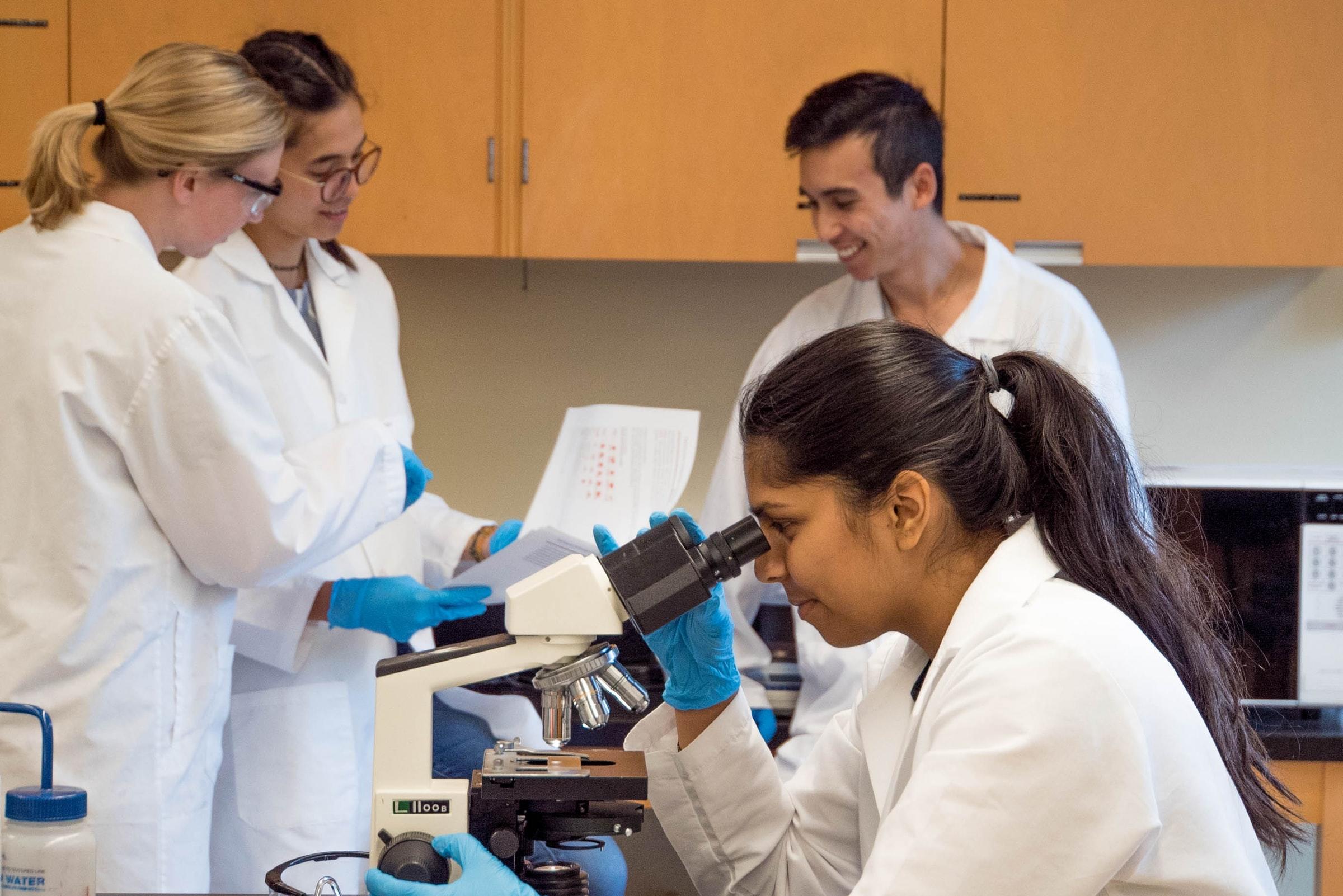“The more we delve into quantum mechanics the stranger the world becomes." -Kevin Michel
Since our world is so varied and unique from one place to the next, it shouldn't surprise us that there are plenty of academic disciplines to study. Mathematics is for the logical and analytical thinkers, history and languages are for worldly individuals who have an artistic flair, and scientific topics such as chemistry, physics, and biology are reserved for those who desire to explore the vast planet that we call home.
Also, most academic disciplines are not static and are constantly moving forward; we have continuous updates to our understanding. For instance, thanks to the brilliant minds working around the clock, subjects such as physics and maths are being developed, which causes us to understand our environment and its limitations.
Therefore, without further ado, in today's article, we shall review the highlights and discoveries in the sector of quantum physics that were uncovered last year.

What is Quantum Science?

To not leave any of our readers behind, let's first answer the question, what is quantum science? Also known as quantum mechanics, quantum science is an essential discipline in physics that allows scientists to provide people with a straightforward explanation and description of the physical properties of nature, such as atoms and subatomic particles.
It's worth stating that quantum science or mechanics is the foundation of the following subdisciplines:
- Quantum chemistry,
- Quantum field theory,
- Quantum technology,
- Quantum information science.
It's worth stating that though the data and information of quantum science have existed since the world's beginning, there are some founding fathers whose discoveries established the basis for quantum physics. Like who? Many reports have suggested that Niels Bohr and Max Planck were responsible for finding quantum theory with their in-depth research that won them a Nobel Prize in Physics for their work in Quanta.
Additionally, Albert Einstein is considered the third founding father of quantum physics because he described light as quanta in his theory of the Photoelectric Effect; for this discovery, he won the 1921 Nobel Prize.
To understand quantum science more effectively, the bottom line is that it's the theoretical basis of modern physics because it attempts to explain the nature and behaviour of matter and energy on the atomic and subatomic levels.
Quantum scientists spend decades researching the scientific matter and energy to uncover discoveries that will brighten our comprehension of the physical world. For students in the UK seeking further insight into both scientific and mathematical concepts, a consultation with a physics and math tutor can offer valuable guidance.
But, what are some of the highlights of quantum science and technology from the past year? Check out the following subheading for the answer.
Search for physics tutor here on Superprof.
What are the Quantum Science & Technology Highlights of 2021?

Since there are thousands of quantum scientists and physicists working worldwide and researching quantum mechanics thoroughly, every year, there are intriguing experiments conducted, and some of them reap fantastic and avant-garde results. Such as?
Let's take a look at the 2021 developments in Quantum Science and Technology recorded by the Physics World magazine.
Kang-Kuen Li's Quantum Chemistry Experiments
Though most attention in quantum science is reserved for quantum computing, in 2021, admirers of quantum chemistry rejoiced since excellent experimental research was conducted. By whom?
Kang-Kuen Ni used quantum stimulation to probe complex phenomena in chemistry to discover something new. The experiment took place in May 2021, when Ni and colleagues at Harvard University reported that they had cooled molecules of potassium and rubidium down to a fraction of a degree above zero; this reduced the number of possible chemical reactions between the molecules from infinite to just 57. While 50 chemical reactions matched theoretical predictions, the other seven didn't.
These experiments conducted by Ni were exciting highlights in quantum chemistry in 2021 that showed physicists that there are still many possibilities in the chemical world to discover using the principles of quantum science.
Discovering the First Quantum Phase Battery
Before explaining how the discovery of the first quantum phase battery came to exist, it's worth answering the question, what is a quantum phase battery? It's a device that provides a continuous phase bias to the wavefunction of a quantum circuit, similar to how a conventional battery provides a persistent voltage bias to an electrical circuit.
In June 2021, physicists at the NEST-CNR Nanoscience Institute in Pisa and the University of Salerno demonstrated the first quantum phase battery. The physicists built the quantum phase battery of InAs nanowires and superconducting Al leads. The research to create the first-ever quantum phase battery was based on information shared by physicists in Spain only five years prior.
The Most Precise Thermometer on the Planet
Have you ever wondered how precise and accurate a working thermometer could be? Well, you don't have to wonder anymore since, in January, colleagues at the University of Aalto, Finland, and Lund University in Sweden created the world's most accurate thermometer by building a nanoscale device that can detect fundamental fluctuations in the electron temperature of any sample tested.
The most precise thermometer is a massive leap forward for advancements in quantum physics since it might be used to make non-invasive measurements of quantum systems such as qubits in superconducting quantum computers.
The previously mentioned advancements or highlights are only three of the many in 2021. The more excited people become about quantum physics and its progress, the more research will be conducted, contributing to advanced discoveries.
See a physics tutor here on Superprof.
What is the Future in Quantum Physics?

While most people are not familiar with quantum mechanics, it's worth stating that it is poised to take over the future and transform many aspects of technology. How's that? According to researchers, experts in the field, and quantum physicists, quantum technologies will fix multiple issues present in modern-day technological devices and systems.
Quantum technologies will shift the use of many things that we are currently using; nonetheless, various countries such as China, the United States, and Canada have been allocating millions of pounds to research the following subdisciplines of quantum mechanics:
- Quantum Sensors: through the use of quantum sensors, technologies will be created to measure stimuli, such as the flow of electricity magnetic fields or high-frequency signals. Quantum sensors can be used to detect early-stage multiple sclerosis, monitor and give advanced warnings of volcanic activity, and help self-driving vehicles determine their surroundings.
- Quantum Communication: quantum communication can be used for quantum key distribution (QKD), which is the exchange of secret symmetric keys for encryption and authentication. Encrypted data is sent as classical bits, but the decryption key is encoded and sent in a quantum state using qubits. Any outside activity would stop the quantum state, meaning communications are ultra-secure and protected when necessary.
- Quantum Computing: by tapping into quantum computing, computer systems could accomplish tasks that would otherwise take much longer to complete. For example, recently, Google has claimed that it had achieved quantum supremacy after their Sycamore quantum processor took just 200 seconds to solve a specific task that would have taken the world's best supercomputer 10,000 years to complete; now, that's impressive!
It's worth stating that since we are constantly using electronic devices, quantum computing is by far the most important of all quantum research. Therefore, it shouldn't surprise us if we see even more developments in quantum physics in the upcoming years.
The bottom line is that quantum science is poised to drastically revolutionise communication, problem-solving, and information processing in the next few decades.
How to Learn More About Quantum Science Discoveries?
Are you thoroughly enjoying this article and wondering where you can find more information about quantum science discoveries? If so, you're not alone because quantum mechanics is a layered field that appeals to all types of persons, even those who aren't usually intrigued by science-related topics.
If you're not working in quantum mechanics, it can be pretty tricky to find out which articles and websites are worth consulting. However, have no fear; Superprof is here to save the day!
Without further delay, the following are a few trustworthy online resources where you can quickly find out more about new quantum physics developments:
- The Independent: a UK-based news magazine that features information about everything. The Independent has a quantum physics section on their website that is intriguing and updates learners about many advancements in quantum science.
- Phys.Org: a science blog perfectly tailored for individuals who want to acquire more information about quantum physics and other subjects, Phys.org is just what you've been looking for. There are blog posts published daily that discuss quantum physics.
- Science News: another informative website, Science News, discusses everything related to science. You'll come across quantum physics news that is relevant and interesting.
In conclusion, thanks to the brilliant minds behind quantum physics, it's an exciting sector of knowledge that is constantly blossoming and becoming more layered. So let's see what's in store for 2022!
Summarise with AI:















